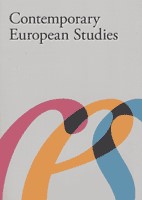Direct Mayoral Elections in the Czech Republic. An Analysis of the Situation in Small Municipalities
Direct Mayoral Elections in the Czech Republic. An Analysis of the Situation in Small Municipalities
Author(s): Veronika BlechováSubject(s): Electoral systems
Published by: Univerzita Palackého v Olomouci
Keywords: direct mayoral elections; local government elections 2014; the Czech Republic;
Summary/Abstract: Direct mayoral elections have been frequently discussed in the Czech Republic. It is certainly related to the consolidation of the democratic system and the ambition of citizens to participate more in political action and decision-making. However, the introduction of direct democracy often serves as a tool to populists who try to implement it even though they do not actually lead to the improvement of the system. One of the steps which were justified by extending participative rights was the introduction of direct election of the Czech President which took place in 2013 for the first time. Similarly to the issue of direct election of the head of the state, the direct election of mayors in local municipalities was accompanied by a discussion of the suitability of this element in the Czech system. Although the head of the state’s function is far more significant than a mayor of a local municipality, the introduction of the direct presidential election may appear easier in many respects. Electing the President concerns only one post, while the direct election of mayors may involve more than six thousand positions. Moreover, it is impossible to approach the role of mayor in a small municipality the same way as the role of the Mayor of Prague. These are completely different environments which require different approaches to the reforms. Therefore, the discussion on introducing directly elected heads of local municipalities should be accompanied by an in-depth analysis of political science, as well as a legal analysis. The article deals with the question whether it is suitable to introduce direct mayoral elections in the Czech Republic. The text includes an analysis of the elections of mayors in Czech municipalities after the autumn elections of 2014. With respect to the fact that some of the proposals for direct elections of mayors suggested this change be introduced only in municipalities with less than 1500 inhabitants, the analysis will focus mainly on municipalities which fall within this size category. The aim of the analysis is to confirm or disprove the hypothesis which has been used when defending the introduction of directly elected mayors in the Czech Republic. The assertion is that after the elections, the right of the winner to appoint the mayor is frequently ignored. However, it is considerably inaccurate to speak about such a right, as there is no such thing as the right of a winning party to get to post the mayor, a prime minister or a county governor, as these positions are anchored in the legislation. It is rather a habit which reflects the political culture and maturity of the democracy. The analysis will study if the mayor was a candidate on the ticket which received most votes in the municipality, or if it was a candidate who received most preferential votes. It can be assumed that if the candidate got the highest number of preferential votes, he is a popular person who would be elected the mayor by the citizens in case there was such option. Though this is a simplified account of the problems, it can be used to demonstrate to what extent the wishes of the voters are taken into consideration in the post-election negotiations.
Journal: Contemporary European Studies
- Issue Year: 2016
- Issue No: 02
- Page Range: 5-18
- Page Count: 14
- Language: Slovak

